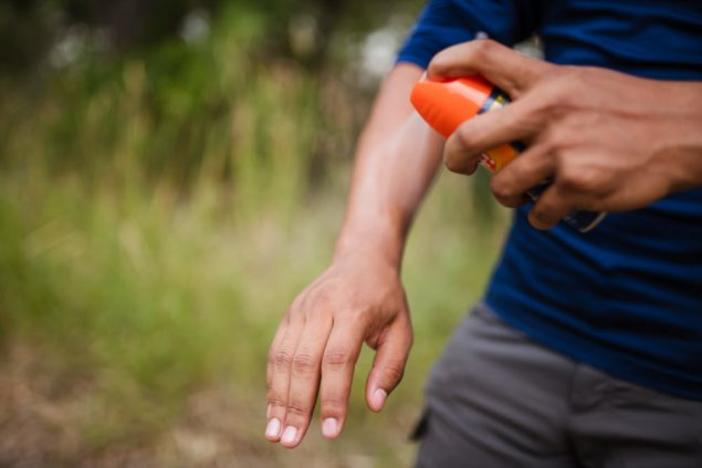Dengue
Mosquitoes and the itchy, sometimes painful welts they leave behind after biting are not enjoyed by most people. Did you know that some mosquitoes can leave more than just those annoying welts? Some mosquitoes can carry diseases and spread them to each person they bite. Dengue (DEN-gay) is one of the diseases that can be spread by the Aedes mosquito.
Dengue is a potentially serious viral infection transmitted through mosquito bites. It causes symptoms ranging from fever and headaches to severe complications, and there is currently no specific antiviral treatment for the disease. If you believe you have dengue, it is important to seek supportive medical care.
The best way to protect against dengue is to avoid mosquito bites.
Types of Dengue
The word "dengue" refers to four related viruses: dengue-1, dengue-2, dengue-3, and dengue-4. Because there are four different types, one can become sick with one type and then another. The second time someone gets dengue, it is generally more severe, meaning the symptoms may be debilitating. However, you are unlikely to get the same type twice because your body will have life-long immunity.
Symptoms
Some people will never know they have dengue because they will not have symptoms. These people are referred to as "asymptomatic."
However, about 1 in 4 people with dengue will feel sick. These people are referred to as "symptomatic." The symptoms of dengue can include:
- Fever
- Headache
- Skin itching and rash
- Vomiting
- Muscle pains
- Joint pains
If you have these symptoms, it is a good idea to talk to your doctor and share recent travel you had in the past 2-3 months and when your symptoms started. Your doctor can determine if testing for dengue or other diseases may be right for you based on your information.
In rare cases, people may get severe dengue. It is estimated that this happens in 1 out of every 20 people with dengue. There are warning signs for severe dengue that are important to remember. Severe dengue is a medical emergency that can escalate within hours. Please get immediate medical care if you have any of the following signs and symptoms:
- Belly pain, tenderness
- Persistent vomiting (at least three times in 24 hours)
- Bleeding from the nose or gums
- Vomiting blood, or blood in the stool
- Feeling tired, restless, or irritable
Testing
If your doctor suspects you have dengue, he or she may order testing to confirm this diagnosis. To do this, your doctor will need to take a sample and send it to a lab that will look for evidence of dengue infection. In rare cases, that sample may be sent to another laboratory for additional testing. All results will be sent to your doctor, who will then explain what they mean.
Treatment
Currently, there is no specific antiviral treatment for dengue. Most people sick with dengue can get better on their own within 2-7 days of first feeling the symptoms. During this time, it is essential to rest as much as possible, take acetaminophen (like Tylenol) for fever, and drink plenty of fluids to stay hydrated.
Acetaminophen (Tylenol) is the preferred treatment for fevers, aches, and pains associated with the dengue virus.
It is important to note that taking non-steroidal anti-inflammatory drugs (NSAIDs) like ibuprofen (Advil, Motrin IB), Asprin, and naproxen sodium (Aleve) can be dangerous for people with dengue. This is because these drugs, combined with the dengue virus, can increase the risk of bleeding and issues with the liver.
Prevention
The best way to prevent dengue and other diseases spread by mosquitoes is to avoid mosquito bites. For great information on how to best avoid bites, please see the CDC's webpage on Preventing Mosquito Bites.
A dengue vaccine is available but is limited in its use. Please visit the CDC's webpage About a Dengue Vaccine for more up-to-date information.
Dengue FAQs
Page updated: 6/28/2024
